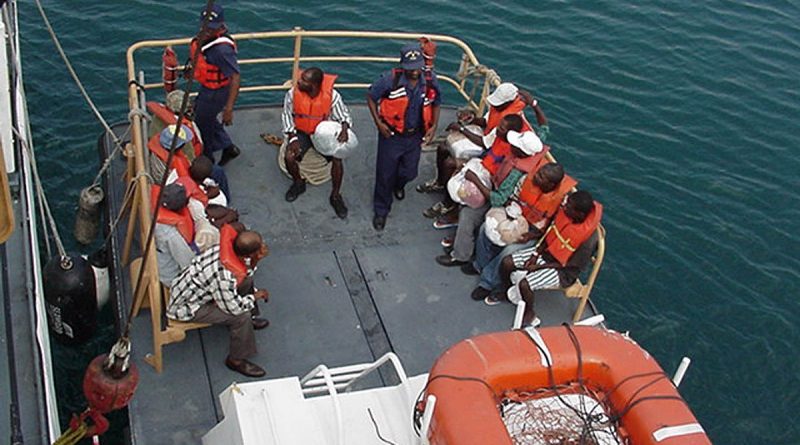Haitian Migrants Sent Home to a State in Chaos
Katherine Dorrer
Staff Writer
In Del Rio, Texas, thousands of Haitian migrants have gathered along the United States-Mexico border in the hopes of gaining asylum in the U.S., a reality they will not be able to achieve. The CDC, alongside the Biden Administration, has pointed to the COVID-19 pandemic as justification for the deportation of thousands of migrant families, reports ABC News. The CDC has cited Title 42 powers, which allow the government to “prevent the introduction of individuals during certain public health emergencies.” This has translated to the deportation of over 6,000 Haitian migrants from the encampment sites in Del Rio, with that number continuing to grow, as reports The Associated Press.
In the wake of recent controversy regarding U.S. Border Patrol agents using long horse reins to keep Haitian migrants from crossing the border, The Times of India states that Homeland Security Chief Alejandro N. Mayorkas responded that “any mistreatment or abuse of a migrant is unacceptable” and that “the pictures that I’ve observed troubled me profoundly.” Additionally, The Guardian reports that the Special Envoy for Haiti, Ambassador Daniel Foote, has resigned, stating that he will no longer be associating with the U.S.’s “inhumane, counterproductive decision to deport thousands of Haitian refugees.”
Chief of Mission for the Port-au-Prince chapter of the International Organization for Migrants (IOM), Giuseppe Loprete, explained that most of the migrants being deported back to Haiti have not lived there for years. CBS News reports that the IOM is supplying essential items to the disembarking migrants such as meals, hygiene products, and a cash stipend to pay for any other necessities. Though the U.S. Agency for International Development is providing $5.5 million to IOM, questions have arisen regarding the capability of the Haitian state in being able to support the return of thousands of migrants.
In their 2021 World Report, Human Rights Watch claimed that more than 12,000 Haitians were displaced in 2020, a product of rising political violence and natural disasters. The Haitian government has been in turmoil this past year following the assassination of President Jovenel Moïse, with circumstances only further deteriorating with a collapsing economy.
Ever since the departure of UN military forces in 2017, gang-related violence has only risen, and as Global News reports, President Biden has explained that the U.S. “has no plans to provide Military assistance at this time.” Migrants return to a Port-au-Prince in crisis, with many neighborhoods either abandoned, buried under post-earthquake debris, or gang-controlled.
Haitian migrant Fiterson Janvier has been traveling throughout South America in the hopes of finding somewhere to seek refuge alongside his family. For many Haitians, there are no other options. Returning to Haiti is their last resort. “Haiti is like hell for me now,” Janvier states in an interview with BBC News. “There is nothing for me there. Nothing. If they’re going to send me back, they may as well just kill me. Just end it all.” With the exception of a few warm welcomes from family to those coming back on deportation flights, the adjustment for these migrants will be difficult, as their home is in a state of chaos.


